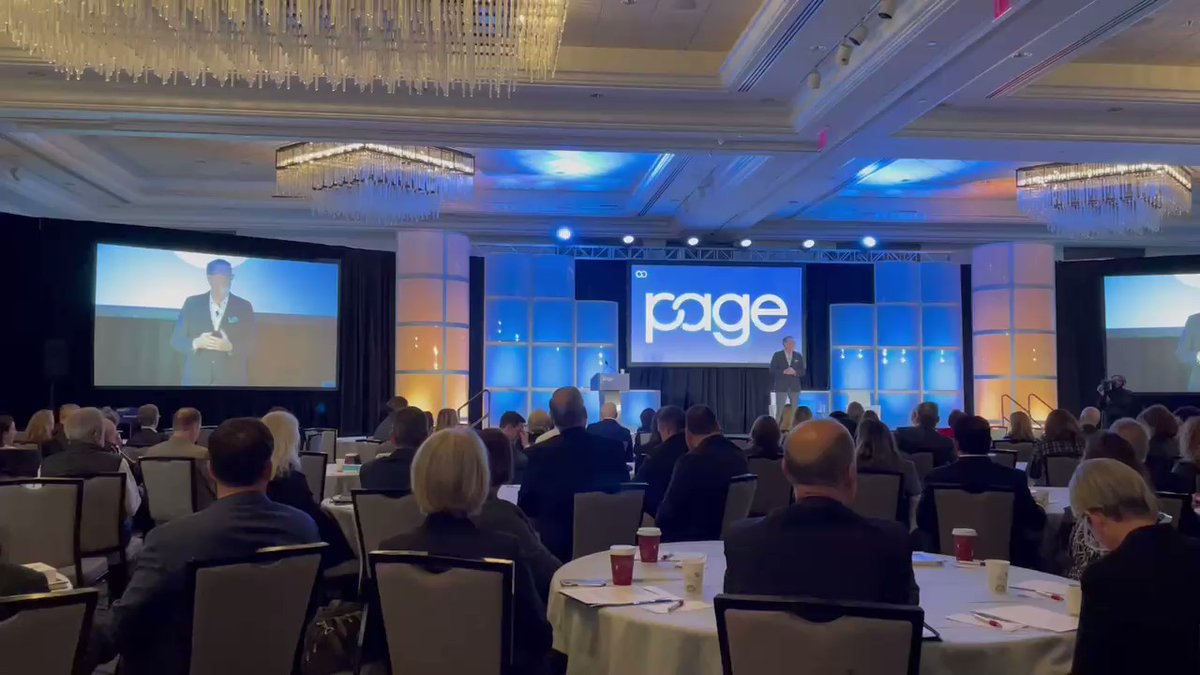The role of the communicator in the transformation of companies

Last week, I had the opportunity to be part of one of the most relevant events of the year for a communicator, the “Page Society Spring Seminar,” organized by the association based in the US and which brings together communication leaders (CCOs) from the most prominent companies, agencies, and organizations of the planet. I was invited by Aberje (Brazilian Association of Business Communication), which for the last 20 years has worked organically on the image of communicators who work in Brazil, highlighting the professional excellence of this group.
The theme of the Page Society event could not be more timely: “Radical relevance, the role of the CCO in the transformation of contemporary organizations.”
The pandemic has further accelerated digital transformation and provoked intense reflection on values. Narratives related to sustainability, diversity, equity, and inclusion gained traction and became hegemonic in the speed of bits and bytes. A process that in the past was sluggish and depended on the gradual engagement of the whole society became a set of emerging and dominant themes very quickly. This made us understand, for example, that a culture that is inclusive and welcoming of differences changes the game.
Communicating efficiently, connecting, and engaging consumers with brands and products are the most significant challenges for companies. In this context, the word radical in the seminar theme refers to the special relevance that authentic communication leadership has for the organization when identifying problems and opportunities, understanding how to address them, and acting with a sense of urgency in a moment of disruptive transformation, business models, corporate identity, and the organizational structure itself.
During two intense days, we could reflect on the new era we are living in for business, with changes that offer a unique opportunity to revitalize our role as communicators and rethink our organizations. Among the most relevant topics, I highlight:
- The new dynamics of connections between a company, its people; and the organizational culture;
- How to move to create value for stakeholders and society;
- What is the digital future of the contemporary company.
In one of the remarkable discussions, the brilliant Dr. Marshall Goldsmith, a management expert, leadership coach, and bestselling author, made it clear that a leader’s role is not to be obsessed with winning but making a difference. In a context where purpose becomes the engine of the corporate world, the part of leadership in transformation must be guided by principles. It is necessary to practice the so-called “Walk the talk,” with actions reflecting the values and culture of the organization.
It is also essential to advance the consumer experience, creating a “storytelling” that engages them in a unique experience with the brand. For this, it is vital to move from a culture of “compliance” to a culture of leadership with purpose, understanding that the topic of ESG is not just about carbon or emissions but also about people. In addition to setting clear goals to make businesses carbon neutral or positive, organizations need to establish a diverse, egalitarian, and inclusive culture. After all, welcoming differences change the game.
Communicators are at the center of this radical transformation experienced by organizations. Our role has never been more relevant than it is right now. We have to be attentive to the business and its interactions with society. Our stakeholder groups act as cogs in a more extensive system that can benefit or harm society. Our role is to systematically study the interactions between each of these gears critically. Thus, we will be able to promote change in our organization. Transparency in communication and a clear, well-defined purpose are key steps in this transformation process.
NELSON SILVEIRA
General Motors Communications Director for South America. Member of the Aberje Deliberative Council.
Destaques
- Global Alliance Launches Recognition Program for Young Communicators
- Alejandro Cornejo Montibeller Joins the Latin American Regional Council of the Global Alliance
- LiderCom Meeting Discusses International Expectations for COP30
- Sports as an instrument of Change
- Aberje Launches Newsletter with Economic Panorama
ARTIGOS E COLUNAS
Carlos Parente A comunicação precisa de um olhar menos vazioLeonardo Müller Bets no Brasil: uma compilação de dados e estimativasLeila Gasparindo A força da Comunicação Integrada: unindo Influenciadores e assessoria de imprensaAgnaldo Brito Diálogo Social e Comunicação Corporativa: A Construção do Valor na Era dos DadosHamilton dos Santos O esporte na mira da crise climática




























